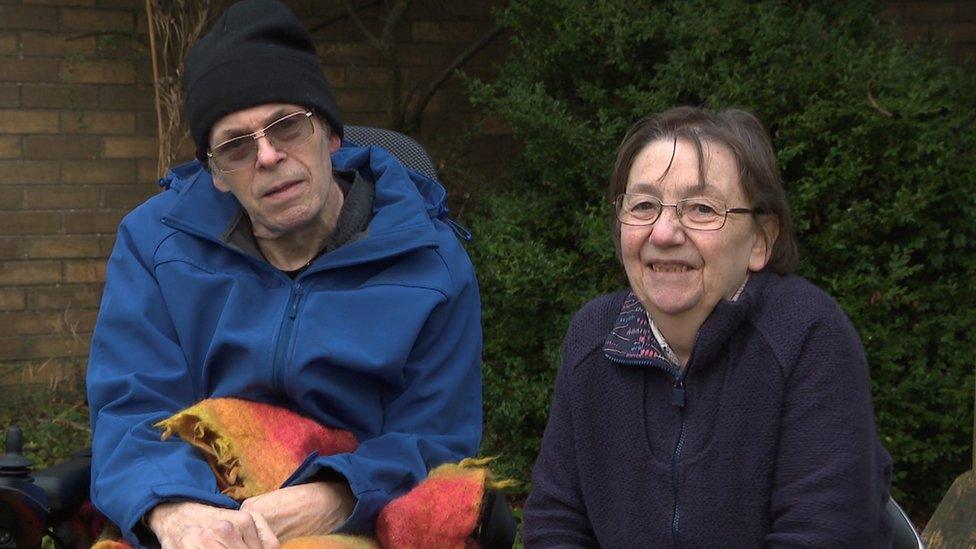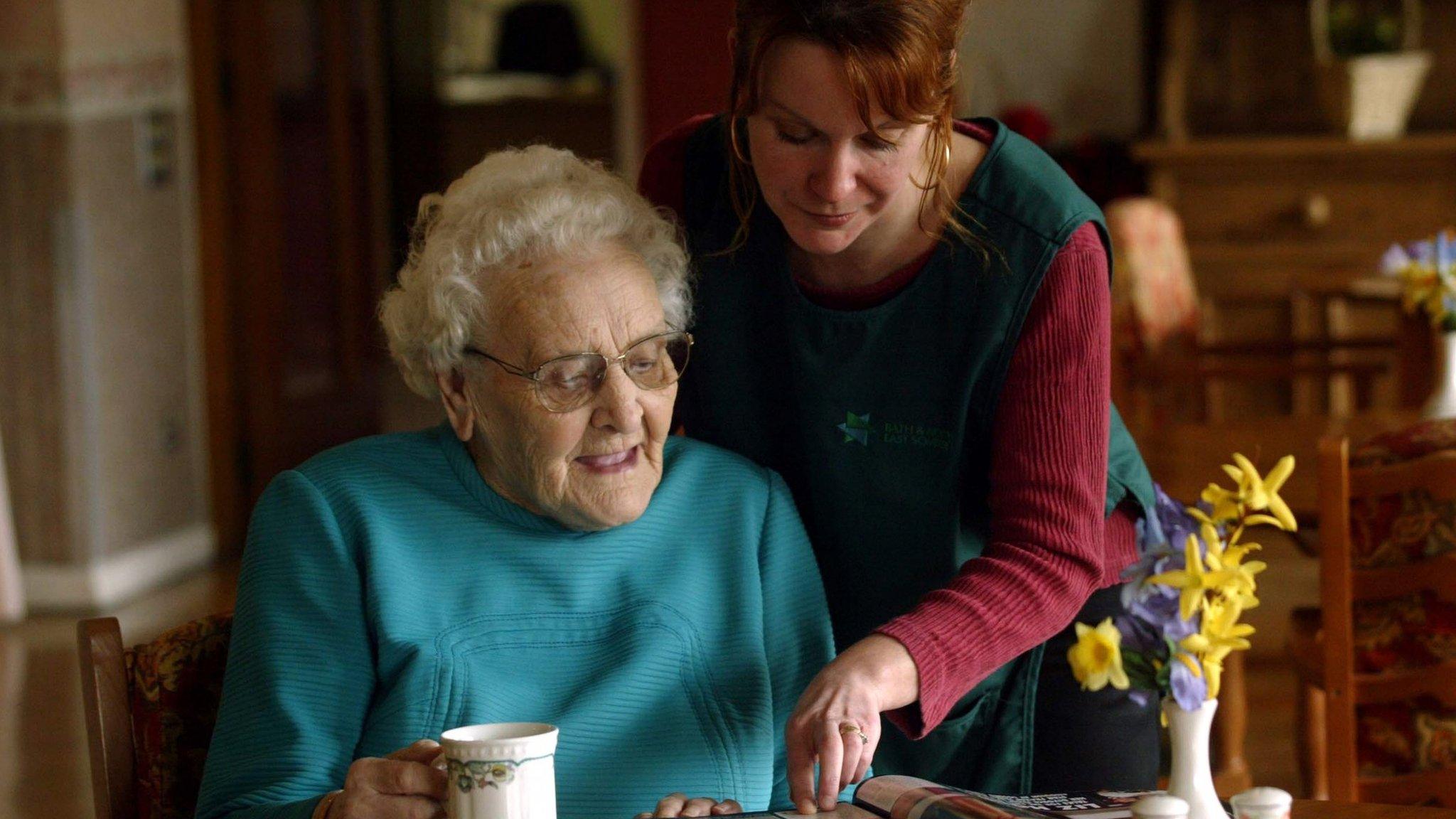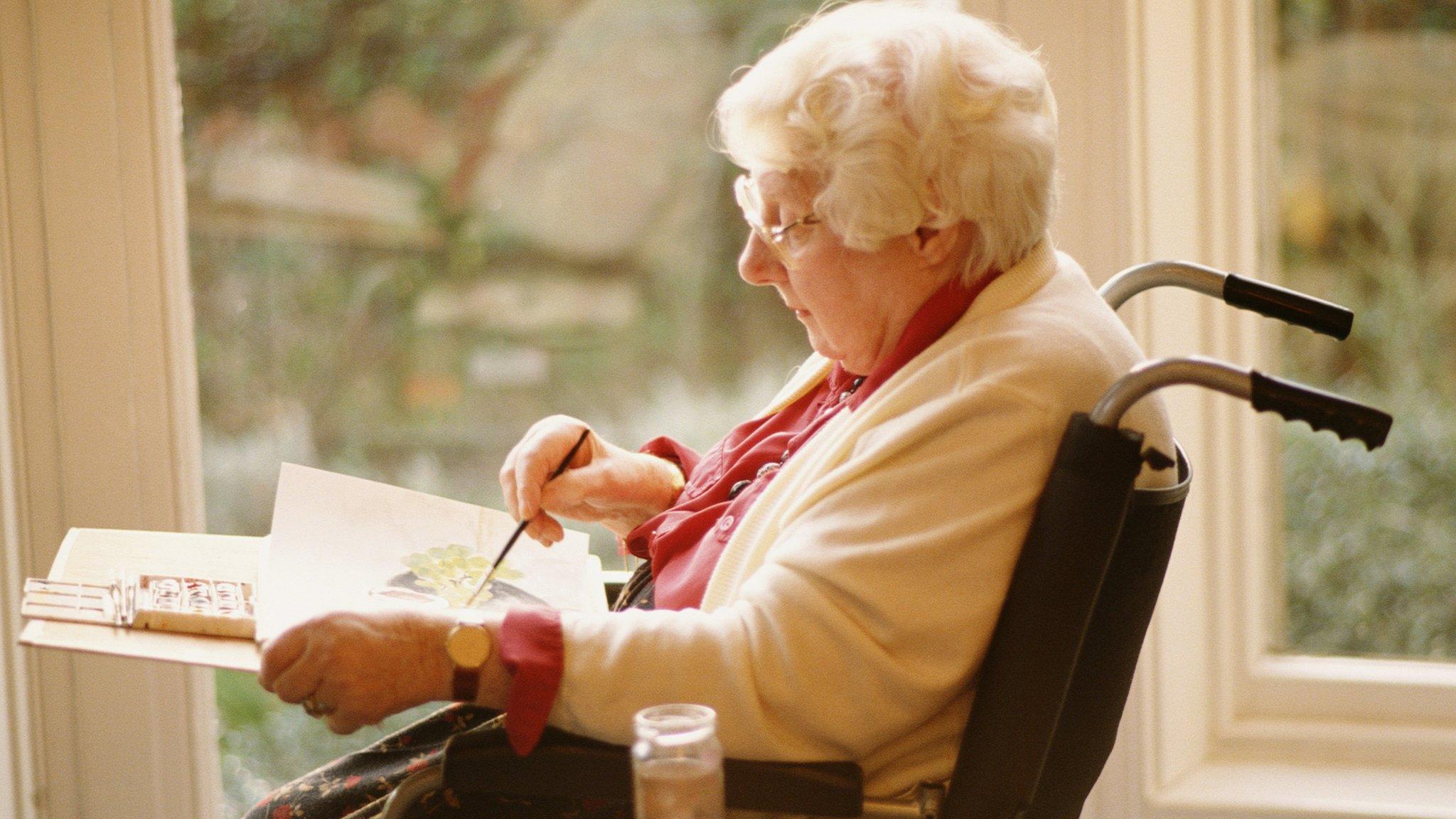Ex-ministers back bid to end zero hours contracts in social care
- Published

Two former health secretaries have backed a campaign to end the use of zero hours contracts in Scotland's social care system.
Alex Neil and Malcolm Chisholm joined academics and patients' relatives in signing an open letter to the current health secretary Humza Yousaf.
It calls for the eradication of zero hours contracts to be included in the National Care Service Bill.
The Scottish government said it opposed "inappropriate use" of such contracts.
Social Care Minister Kevin Stewart said companies bidding for government work are evaluated on their fair working practices "where it is relevant and proportionate to do so".
The letter states that, according to the Office for National Statistics, about a million people across the UK are employed on zero hours contracts.
It adds this includes 74,000 in Scotland, of which 20% are employed in the health and social care sector.
Mr Neil, who served in Alex Salmond's SNP government from 2012 to 2014, branded the contracts "pernicious" and warned the health and social care sector was in the midst of a major recruitment crisis.
He said: "Social care shortages are leaving patients stuck in hospital taking up much needed hospital beds at a cost of £4,000 a week when they should be recovering at home with social care support.
"Zero hours contracts are a barrier to people working in the care system and should be banned."

Former health minister Alex Neil stood down as an MSP at the last election
The letter also claims social care staff shortages are driving delayed discharges in Scotland's NHS.
The problem, often referred to as "bed blocking", occurs when a patient continues to occupy a hospital bed despite being clinically able to be discharged.
Malcolm Chisholm, who held the health brief in the Labour-led coalition between 2001-2004, said social care staff "performed heroically" during the Covid pandemic.
He added: "They deserve to be treated with dignity and respect with a secure contract, fair pay and decent working conditions.
"The Cabinet Secretary has the opportunity to end the use of these contracts once and for all."
'A stain on Scotland's care system'
Zero hours contracts do not oblige employers to provide a minimum number of working hours but neither do they oblige employees to accept any of the hours offered by their employer.
Workers on zero-hours contracts are still entitled to statutory annual leave and the national minimum wage.
Although such contracts have been controversial, some say they provide flexibility to people such as students, parents and those with other caring responsibilities.
But critics say that zero-hours contracts create insecurity for workers and are used by employers to undercut wages and avoid holiday pay and pension contributions.
Chris Peace, campaign director of Zero Hours Justice, said the contracts were a "stain on Scotland's care system".
She added: "They cause anxiety and fear amongst workers leaving them financially insecure and unable to plan their lives.
"They are a key factor in the recruitment crisis in the Scottish care system which, according to the Scottish government, has a 43% vacancy rate."
Ms Peace called for the contracts to be scrapped in the National Care Service Bill.
The Scottish government last month defended its plans for a new National Care Service.
The government says the system will be the biggest shakeup of public services since the creation of the NHS and will end a social care "postcode lottery".
But questions have been raised about the cost of setting it up and what it means for local decision-making.
Social Care Minister Kevin Stewart said the fair working practices of companies bidding for Scottish government work were already evaluated.
He added: "This includes the inappropriate use of zero hours contracts and this will be extended to the National Care Service.
"The Fair Work in Social Care group has developed a set of minimum terms and conditions, including investigating ways to end the misuse of zero hours contracts within the social care sector, and work to deliver these standards with key stakeholders has begun."
Related topics
- Published1 December 2022

- Published8 November 2022

- Published1 November 2022

- Published21 June 2022
